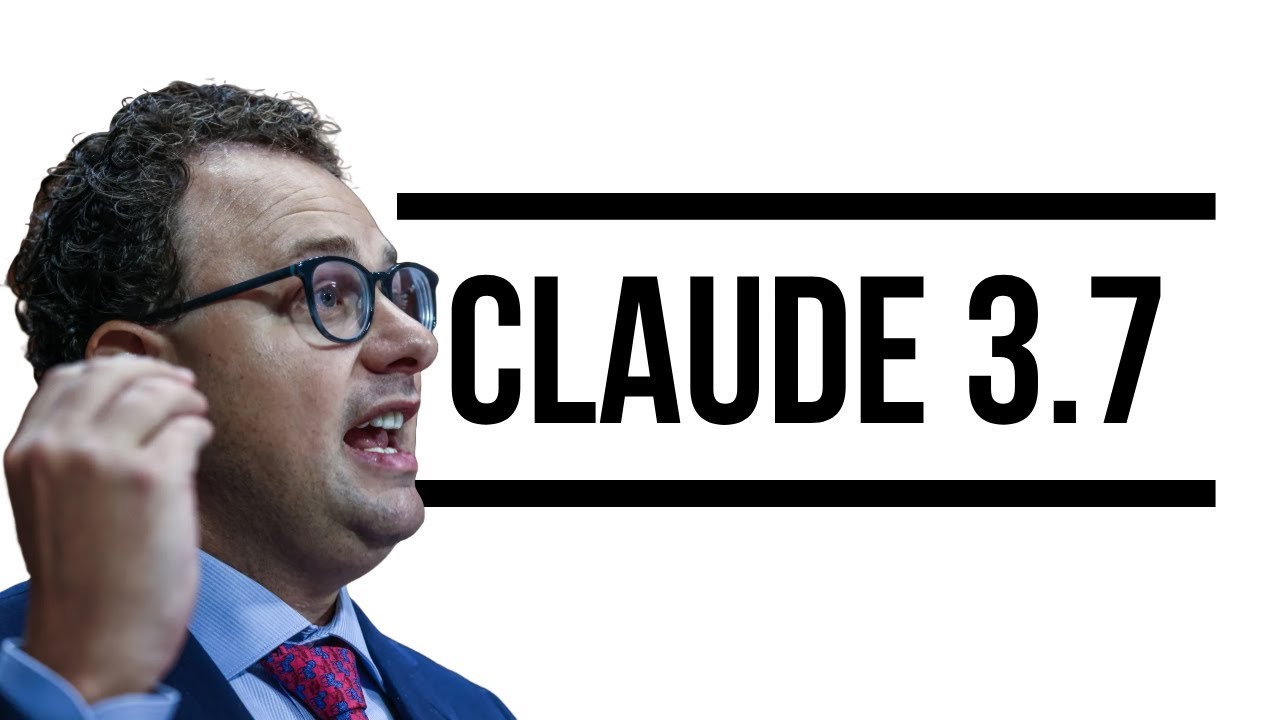The video highlights the release of Claude 3.7 by Anthropic, emphasizing its significant advancements in software engineering and coding capabilities, as well as a shift in its approach to AI that suggests subjective experiences. It also discusses the model’s extended thinking feature, impressive benchmark performance, and the broader implications of AI advancements, while urging viewers to critically evaluate AI capabilities and stay informed about ongoing developments.
The video discusses the recent advancements in artificial intelligence, particularly focusing on the release of Claude 3.7 by Anthropic, which is now available to the public. The presenter highlights the rapid evolution of AI technology, mentioning other developments such as Grock 3 humanoid robots and the anticipated release of GPT 4.5. The video emphasizes that AI progress is accelerating, with Claude 3.7 showing significant improvements in software engineering and coding capabilities, making it a valuable tool for developers.
The presenter notes a notable shift in Anthropic’s approach to AI, as the new system prompt for Claude 3.7 suggests that it possesses subjective experiences and emotions, contrasting with previous guidelines that instructed the model to avoid implying any personal identity. This change raises questions about the nature of AI and its potential for consciousness. The video also mentions that Claude 3.7 has been optimized for coding tasks, which has led to impressive performance benchmarks, particularly in software engineering.
Benchmark results indicate that Claude 3.7 performs well in various tasks, including graduate-level reasoning and coding challenges. However, the presenter cautions viewers to take these results with a grain of salt, as real-world performance may not always align with benchmark scores. The video includes anecdotes demonstrating that while Claude 3.7 can excel in certain areas, it can also make mistakes, highlighting the importance of critical evaluation of AI capabilities.
The video also discusses the extended thinking feature of Claude 3.7, which allows the model to take time to reason through problems before providing answers. This feature is intended to improve the model’s performance and reasoning abilities. Additionally, the presenter mentions the model’s ability to generate extensive text outputs, with a token limit that allows for the creation of lengthy documents, further showcasing its potential for content generation.
Finally, the video touches on the broader implications of AI advancements, including the development of humanoid robots that can work together seamlessly and the potential for future AI models to exhibit more sophisticated reasoning and creativity. The presenter expresses a cautious optimism about the future of AI, acknowledging both the exciting possibilities and the ethical considerations that come with these advancements. The video concludes with a call to stay informed about ongoing developments in the AI landscape.
